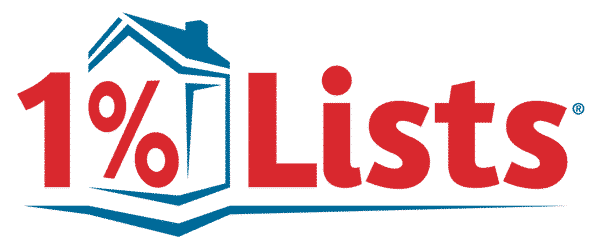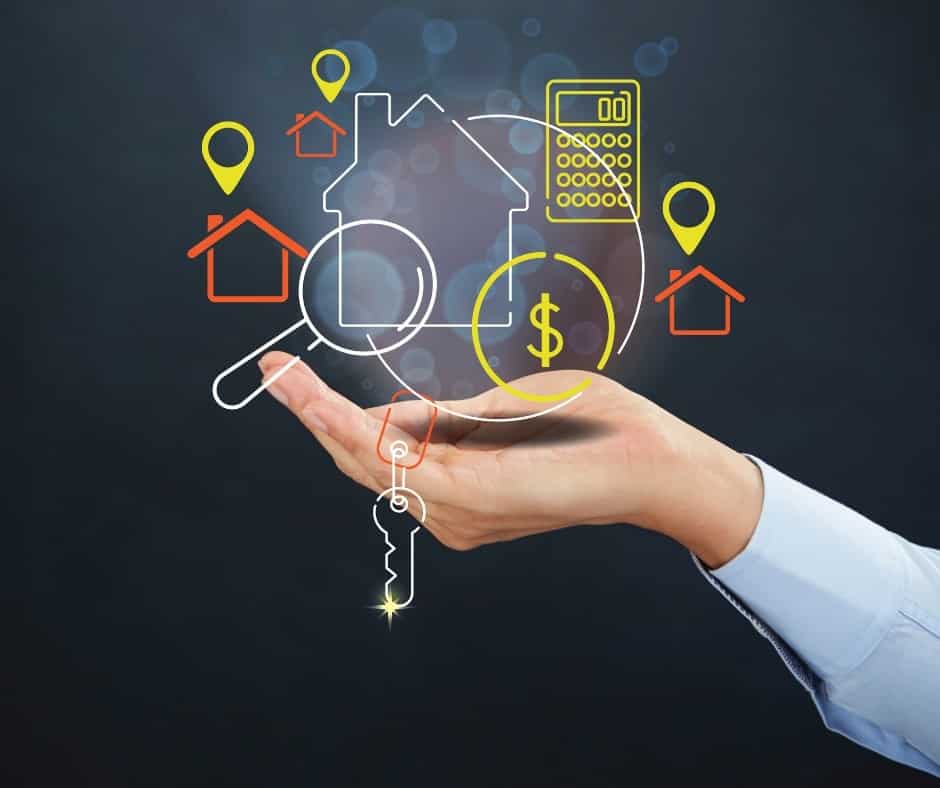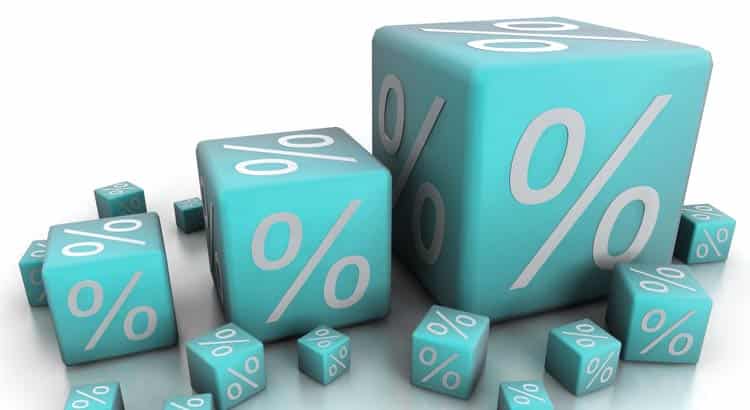A recent study found that three out of every four homebuyers had regrets about their purchase.
Before you begin shopping for a new home, educate yourself on the common mistakes first-time buyers make.
Here are 26 things that people wish they knew before purchasing a home. From tips on scouting out the neighborhood to advice about financing, these are all things you should know. These tips can save you a lot of headaches in the future.
1. You don’t need to have a 20% down payment
Many people believe they will need to pay 20% as a down payment. According to a report by the National Association of Realtors, 44% of buyers actually put down less.
There are many programs that can assist first-time buyers in reducing their down payment. Many lenders also offer mortgages with less than 20% down.
There are, however, trade-offs when you put less down. You will probably pay a higher rate of interest. You’ll also have to pay private mortgage insurance. According to Freddie Mac, this can cost between $30 and $70 a month per $100,000 borrowed. Though for many, the trade-offs make it possible to own a house.
2. You might be pre-approved for more than your budget allows
Pre-approval is based on several factors. These include your gross income and employment history. These are important factors, but they only give a partial picture of your ability to repay the loan.
Your bank may not be aware of your other financial obligations such as caring for elderly parents or extracurricular activities. The bank may not be aware of how much money you pay into your retirement account or for health insurance, before the net income reaches your account.
It’s therefore possible to get pre-approved for loans you cannot afford. It’s therefore important to be upfront with yourself when it comes to your budget. Calculate your housing costs to get an accurate picture.
3. Compare different lenders and make them compete to win your business
Multiple lenders competing for your loan is one of the best ways to save money on your home purchase. Get a loan estimate from one lender, then contact a few others to see if the offer is better.
Michael Quan, the founder of Financially Alert advises that you can compare APRs and not just interest rates when shopping for a loan. He added that you can also negotiate on origination fees, rates buydowns and buyer other closing costs.
Quan explains that learning more about the mortgage financing process will literally save you tens and thousands of dollars. Don’t accept a bank’s first offer.
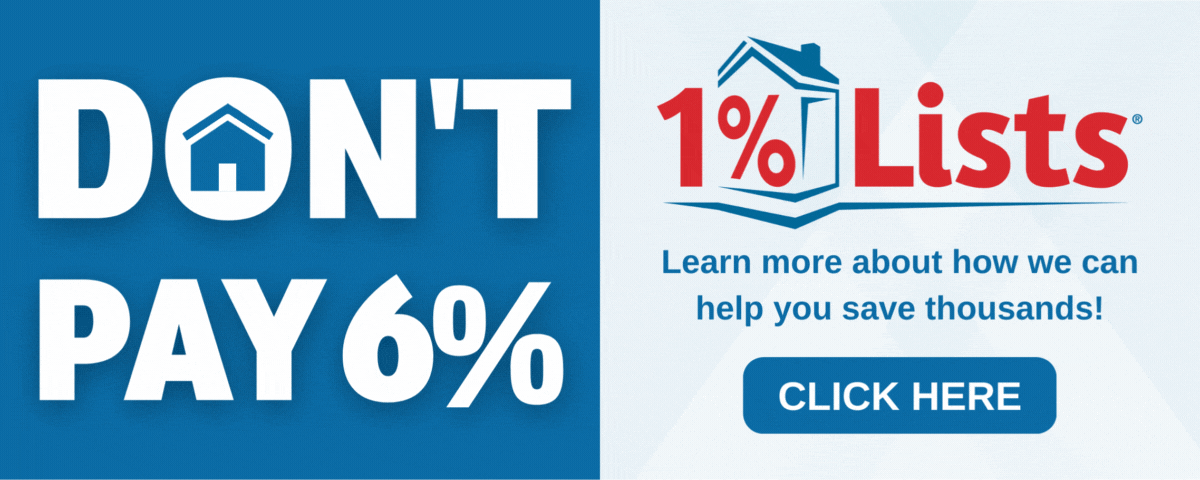
4. The down payment is not the only expense you’re responsible for
Zinnia Adam, the founder of perspectives says that homeowners are often focused on the preapproval process, without realizing the other costs they will encounter during the buying process.
These costs include:
- Earnest money Deposit: 1-3% of purchase price (which will later be applied to your down payment or closing costs).
- Home Inspections: $250 to 700
- Appraisal $250-500
- Closing costs: 2-5 % of the purchase price
- Payment: 3.5-20% down payment
- Moving costs: $1,250 to $5,000
Adams warns that certain people may need more than just a standard home inspection. You may also need a mold inspection or septic system inspection, and fees will vary depending on where you live. Homeowners should prepare not only a down payment, but also a significant amount of cash to cover these costs and closing fees.
5. There are many types of mortgages available
There are different types of mortgages , each with their own terms and conditions. A fixed-rate loan is the most common mortgage type. It offers a constant interest rate throughout the term of the loan. There are also adjustable-rate mortgages, which have an initial rate of interest that is lower than a fixed-rate loan but that can change over time depending on the market. Government-backed mortgages are available, including those provided by the Federal Housing Administration FHA. These can be used to help people with less than perfect credit qualify for a loan.
It’s important that you do your homework and consult a mortgage lender who is qualified before making a decision.
6. You can tell if you are a DIYer or not.
Home improvement can be a tedious task. If something goes wrong it can drain your budget quickly and even strain relationships. It’s crucial to understand your limits when it comes to home projects. Many people enjoy the idea of taking on a house project to save money, or simply because they want the satisfaction of a well-done job. Not everyone is equipped with the necessary skills, knowledge or persistence to successfully complete a project.
Ask yourself these questions before buying a home that needs work and embarking on an adventure of DIY.
- Am I reasonably handy?
- Can I learn new skills?
- Can I dedicate the necessary time to this project?
- What do I do when I have started a project?
You can determine whether you want to buy a fixer upper or focus on a move-in-ready home by answering these questions.
7. Check the energy efficiency of your home
Andrew Daniels, the co-founder and CEO of Millennial Homeowner explains that “when looking for a house, it’s important to think about the energy efficiency and whether you can afford it each month to heat and cool the property properly.”
Insulation and windows are two important factors that contribute to the energy efficiency of a home. Insulation keeps heat in the home during winter and outside during summer. Windows can allow heat to enter the house or escape through drafts.
The cost to heat and cool a house that is poorly insulated or with poor quality windows will be more expensive than a home that is energy efficient. When choosing a home, it is important to take into account energy efficiency. It will not only save you money, but will also protect the environment by reducing energy usage.
8. Find out about homeowners insurance and property taxes
You will have to pay two expenses after you buy a house: homeowners insurance and property taxes. The cost of each depends on a number of factors, such as the value and tax rate in your area, along with the level of coverage you select for your homeowners insurance.
In general, you should expect to spend several thousand dollars per year on these expenses. Although this amount may seem high, you should remember that homeowners’ insurance and property taxes help protect your most important asset – your home. They are therefore essential expenses for every homeowner to budget.
9. The monthly mortgage is not the only cost of a home
Many people compare the monthly rent with a possible mortgage payment when deciding whether to buy or continue renting. Eric Nisall is an accountant and the founder of Understanding Finances. He explains that “there are many more expenses you’ll encounter when owning your home.”
He says, for example, to think about “multiple” insurances from windstorm insurance to flood insurance and business insurance (if your business is run from home). There are also property taxes, possible HOA fees and utilities. This is why those who are interested in home ownership should look at a broader budget than the mortgage payment.
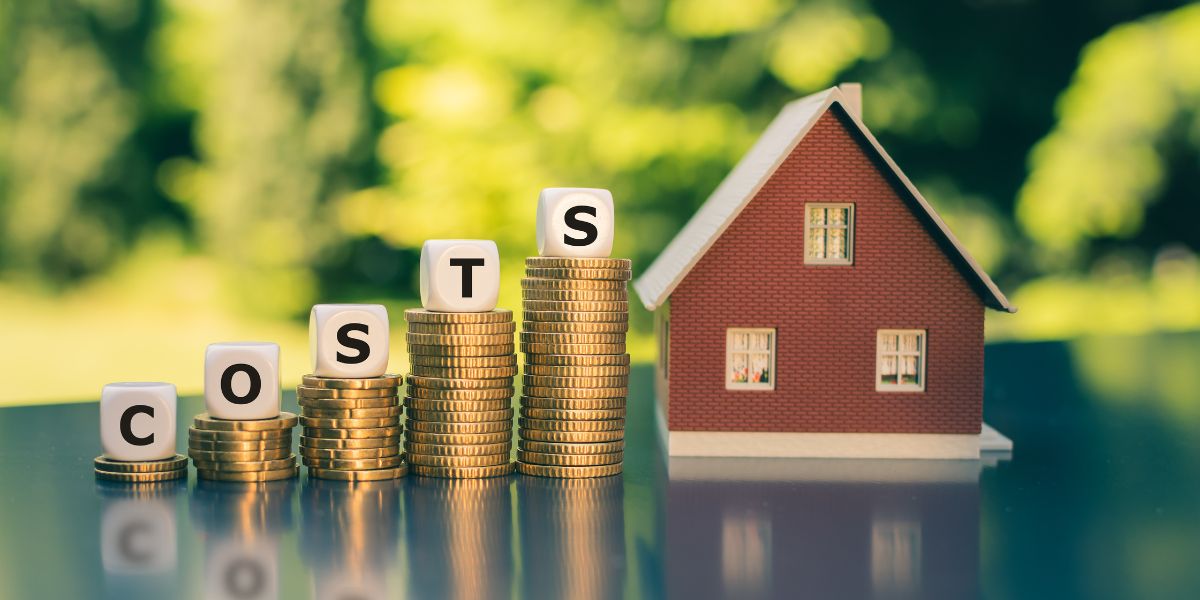
10. Housing costs can consume up to 30% of a person’s income
You will often see the recommendation to not spend more than 25%-30% of your income each month on mortgage payments. Depending on your finances, debt and where you live it may make sense to break this rule.
John Pham, the founder of The Money Ninja explains that a person without debt can easily manage housing costs greater than 30% of gross income. Someone with significant debt, however, may find it difficult to maintain that ratio.
Many people with high incomes end up taking on mortgages which are unaffordable due to their monthly debt repayments and expenses. Pham says that it is important to determine how much you can comfortably pay for a mortgage prior to purchasing a home.
11. It’s always a big bummer when appliances break.
CPA Riley Adams says that when buying a house, you should set a realistic timetable of when you expect to replace the appliances. In his experience, he says “a major expense will inevitably fall on you sooner than you would like.”
12. You can save money by opening a home maintenance account
Saving money for home repairs and maintenance is an excellent way to keep your house in good condition. You can create a fund for maintenance or repairs by setting aside a certain amount each month. A healthy emergency fund will help you to be prepared for any unexpected expenses, says Kristin Steins, the founder of cents and purpose.
You can budget for large projects such as painting your house or replacing your roof with a home maintenance account. A maintenance fund will give you peace-of-mind, as you know you’re prepared for anything.
13. Make sure you have enough space to store your items.
When searching for a home, most people tend to look at factors such as the number of bathrooms and bedrooms, the size and location of the yard. Storage space is often overlooked.
It can be life-saving to have plenty of storage in your home, especially if there are a lot of things you own. Even if you do not have much stuff, having a place to store holiday decorations, clothes that are out of season, or extra household items is still a good idea.
You may think you don’t need a big garage or closet, but the majority of people find it useful to have a space to neatly store their things.
14. There will never be a perfect home
If you have a vision of your perfect home, even down to the color of kitchen cabinets that you desire, it’s possible. Personal finance blogger Jackie Beck warns that if you are looking for perfection, and you only make an offer on the home of your dreams, you may end up paying too much or losing out to another offer. She explains that this is true especially in a sellers’ market.
Be flexible instead. You can get a better deal by being flexible, even when the market is hot. If you can see the potential of a house or are willing to give up certain amenities, then you may be able to get a great deal.
15. You can check your commute to work
It’s important to think about your commute before buying a home. If you drive a lot, it may be better to live near your workplace. You should check if your preferred neighborhood is accessible by public transport. Noise and traffic from a train can be an issue if a home is located near one.
You can make your commute easier by researching the house you choose. Kelan and Brittany Kline of The Savvy couple say that you should ask yourself:
- What is the impact of your commute on your daily routine?
- How long will it take you to arrive at work?
- How long will you take to return home?
These answers will impact your daily quality of life and should be considered when buying a home.
16. You shouldn’t think that buying a house will result in a large tax deduction
Logan Allec , CPA, says that this might be shocking to you. “You should ignore the whole spiel about how buying a home comes with many tax benefits” unless it’s something you have done yourself.
Consider your annual mortgage interest, property taxes, marginal tax rate and any itemized deductions when calculating your taxes. If you need assistance, contact an accountant. It may surprise you to learn that you are not getting as many tax benefits as you thought.
17. It’s not necessary to ask for people’s opinions about the house
It’s tempting when you’re buying your first home to ask for as much help as possible. You could ask your parents to join you on a home tour. It can be useful to have an outside opinion, especially if your friend is a contractor with experience. However, in the end, it is only you who matters.
Forrest McCall is the founder of Don’t Work Another day. He said that “when purchasing a house, you will likely receive opinions from many people.” He also said that avoiding other people’s opinions would make the whole process easier and help you to find the perfect home for your needs and wants.
You’re the only one who will have to live in it. You should only spend your money on a home if you are going to live there. You don’t need to listen to what your family, friends, or Realtor think is best for you.
18. Consider the wiring, not just the aesthetics. Look beyond aesthetics.
It’s important to know that a staged home may not be the best indicator of a house with hidden, expensive repairs.
Michelle Onake is an Intentional Financial Coach. She says to check to see if the outlets have three prongs. If so, she advises “verify they are grounded if your house was built before 1970.” A grounded outlet protects your devices against power surges.
Onake recommends that you also ask what material the water pipes are, what kind of foundation is the home on, if the house has gas, and how old the furnace is.
19. Ask if there has ever been a basement flood
Basement flooding can be a serious problem for homes. Asking if a basement has ever been flooded is an important question to ask before buying a house. You should ask how much water has been involved, the cause of the flood and if the problem was resolved. Flooding can be caused by a variety of factors, such as heavy rain, faulty sump pump, or broken pipes.
In some instances, reducing the risk of floods may be achievable by taking preventative action or making repairs. In other cases, like when a house is built on a floodplain the risk of flooding may be too great to justify buying it.
You can make a more informed decision by asking about flood incidents prior to purchasing a home. Talk to your neighbors to find out if they have experienced flooding.
20. Rent it out one day.
Dustin Heiner is the founder of Master Passive Income. Heiner explains that “each time you move, you can keep the original property and rent it out to tenants to earn passive income. You can then use this money to pay for the mortgage on your new home.” Heiner explains that if you repeat this process several times, you will build up a portfolio of rental properties which can generate cash flow.
Whitney Hansen is in agreement. She said: “If I had to give myself advice again, I’d only consider properties with the potential for income.”
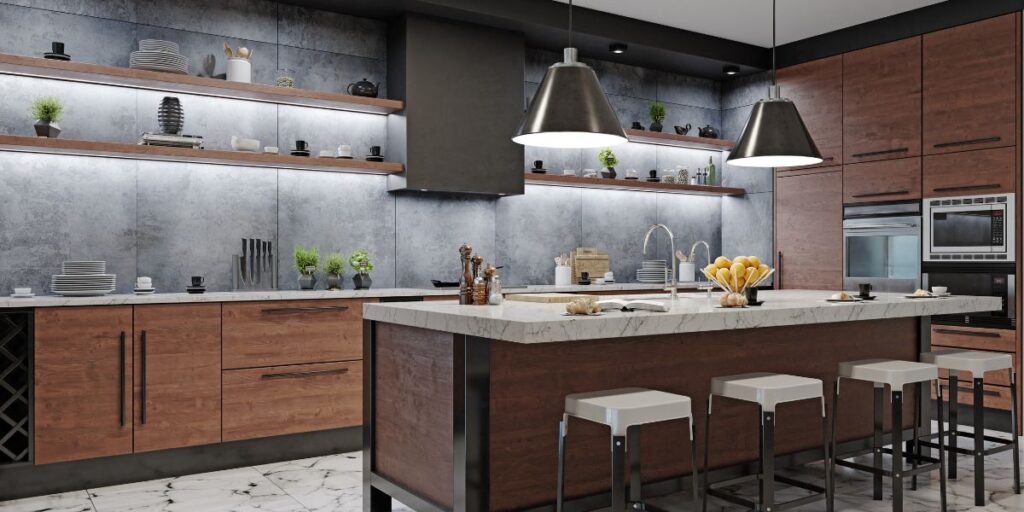
21. The cost of new kitchens and bathrooms is higher than you might think
Some people purchase homes that have outdated bathrooms and kitchens, believing they will save money and then upgrade later. Jacob Wade, the founder of Roadmap Money says that consumers tend to underestimate the costs of renovations.
He said, “After pricing kitchen and bathroom remodels it was shocking to see costs as high as $100,000. Just to improve the home.” Wade did many of the renovations himself, but still spent more than $20,000 on basic upgrades.
22. Calculate how much it will cost to maintain the landscaping or hire it out
Jim Wang, the founder of Wallet Hacks, says that “the surprise was outside the house.” We didn’t realize how much work we did on our trees. This meant that we sometimes had to cut them down because they were a danger to the house.
You will also have to deal with pests, weeds and overgrowth. This can be a costly expense, so you should consider it when buying a house.
23. Ask the seller if there is a warranty on the home.
Home warranties are a form of insurance designed to protect homeowners against the cost of replacing or repairing major appliances and systems in their home. When buying a new house, many people choose to purchase a warranty in order to be protected from any problems.
It is still important to do some research before purchasing a home warranty and ask a few important questions. What is covered by the warranty? Some home warranties only cover certain items such as appliances and HVAC systems. Some may offer a more comprehensive warranty. You should know exactly what is covered to make sure you have the right coverage.
What is the duration of the warranty? Most home warranties last one year. However, some companies also offer plans that cover multiple years. Ask about the length of coverage to be prepared. What is the cost to maintain the warranty? Prices for home warranties can be very different.
24. Expect an inspection to not catch all issues
The majority of potential buyers trust an inspection to detect costly maintenance problems. It’s possible that an inspector will miss something. Tana Williams of Debt Free Forties says that the air conditioner passed its test because it worked as expected. “However the home inspector didn’t check that it actually cools correctly.”
Williams bought her house during cooler months. The A/C worked fine. Once summer came, Williams’ 20-year-old air conditioner couldn’t handle temperatures above 80 degrees. The result was a costly fix.
Rachel Hernandez, real-estate investor and author, also says: “Assure yourself that you hire your own inspector… You should hire someone to work for you, but you need to be involved in the home inspection process as well to feel at ease.”
25. Find out about the rules and restrictions in your neighborhood
Asking about neighborhood restrictions is important when buying a home. These restrictions may be imposed either by the homeowners’ association (HOA), or the city or counties. These restrictions can restrict what you do with your home, how you maintain your yard and what type of improvements you make.
Your neighborhood may have rules about the colors of your exterior paint or whether or not you can park a boat or RV in your driveway. Before you sign, be sure to understand the restrictions of the property.
26. Curtains are not included in the price of the home
Many home purchases include blinds and curtains. It’s still important to check. A couple of weeks prior to buying my house, I found out that the owner wanted to keep the curtains but was willing to sell them to myself. It was the same with a wine refrigerator and light fixture.
It was a little surprising and we had to negotiate with them because I didn’t really want to buy all new curtains or a wine refrigerator. The light fixture was not required, but the mini-fridge, curtains and $500 were unexpected expenses.
